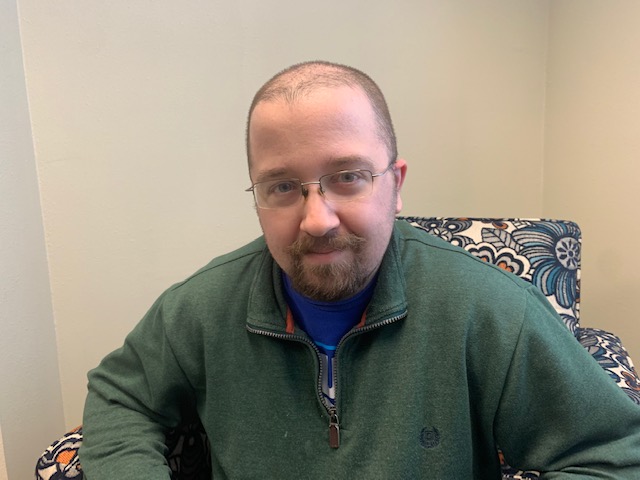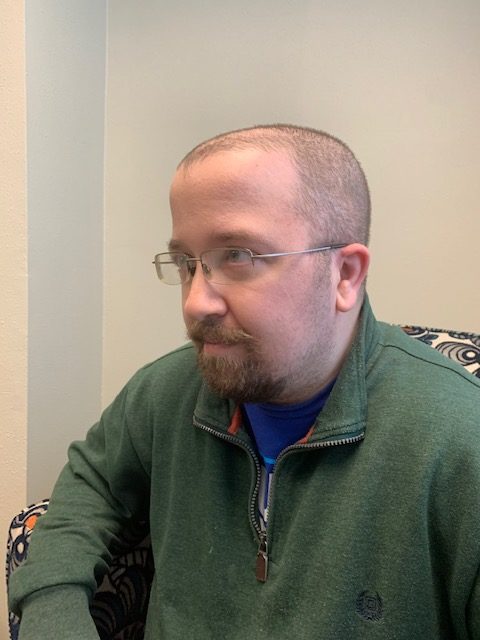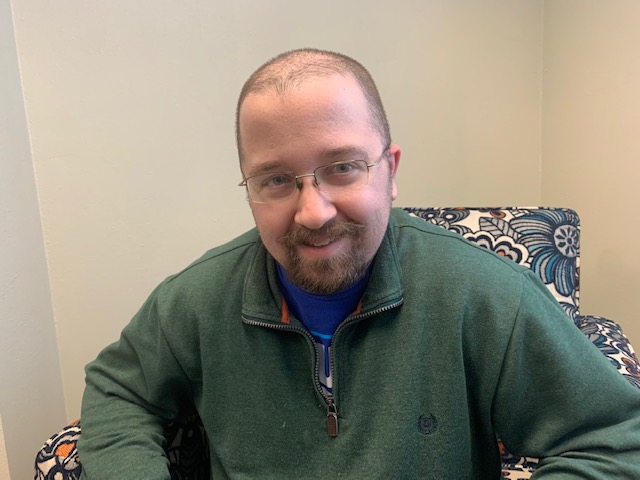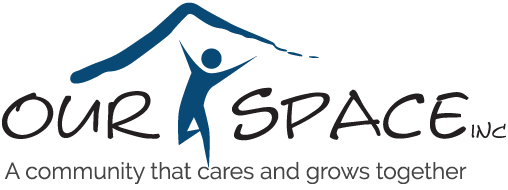
On the first day Nick walked into the Our Space community room, he knew it was a very special place. Just two short years later, he finds himself serving as the President of the drop-in center program, which is designed to empower individuals who face mental health and/or substance abuse challenges.
“From the very first day I was here on a tour, I felt like I belonged. People were talking to me and asking questions and I felt like I was part of the group,” Nick recalls. Our Space was not only a place of acceptance and understanding, it was a place where Nick could work through his mental health struggles in his own way. “I knew I could explore it further and at my own pace and I would be accepted.”
Nick’s story of mental health challenges began in a seemingly normal way, with fond childhood memories. “I was a happy child, but I was also a bit shyer than most. I had a core group of four or five good friends, but I certainly wasn’t a gregarious kid. I kept to myself a lot.”
His childhood included many happy memories of summers at the Village Club, where he learned to play tennis. He started playing at age seven and earned both JV and Varsity tennis spots during his high school years. “I really like tennis because it is a singular sport. Most of the time it’s between the ears [your brain]. So much of it is about you playing against yourself. It is kind of like playing chess, you create a strategy, you craft your shots, and you develop your game.”

In addition to crafting his tennis game, Nick also developed strategies to deal with the pressure of fitting in, which often troubles teenagers. “I was pretty much a blend in type of person. I was quiet so got along with everyone, without getting made fun of. I wasn’t really picked on, but I do feel like I missed out on opportunities to date and mingle.” He notes that he was always overthinking things, something he now defines as anxiety. “My worries often caused me not to get involved. I always though what if the worst possible scenario happened. It was all in my head, but I feel like if I approached it honestly and securely, it might have been a different situation.”
After graduation, Nick entered college at UW-Milwaukee for clinical laboratory studies. “I struggled on and off with anxiety and saw a therapist during the first two years. It was challenging at times, but I was still able to get by. I would get tense every once in a while, but I would just power through.”
When his third year of college hit, his anxiety was amplified. “During junior year they start to transition you into the job, you see all the things you might be doing in the hospital. It was a very accurate job. If it wasn’t done right, you needed to go back and do it over again.”

As the rigor of his schoolwork increased, his mental health struggles started to take on a repetitive nature, with a couple great weeks followed by a few dark ones. “In the fall of my junior year I started to have mood cycles. Two weeks of feeling in tune with everything that was going on around me—I was just on. And then the next two weeks I would fall into a deep depression.” But despite his struggles, he battled back after each bout, “I would start to feel like I conquered it. I thought if I could keep getting ahead of it, I could keep going.”
Yet despite the up and down nature of his mental health battles, it would take another two years before a diagnosis came, and Nick could finally put a name to his suffering. “Perspective…” he muses, “…is an interesting thing.” When given the gift of hindsight, a diagnosis of Bipolar 1 and anxiety disorder was not a surprise. Bipolar disorder is a mental health condition that often presents itself in the late teen or early adult years, so the timeline of Nick’s struggles was not unusual.
Since his diagnosis, Nick has done his best to come to terms with it. Being a part of programs like Our Space have helped him develop important skills that allow a certain level of independence. “I live on my own in one half of my parent’s townhouse. If I want to hangout with them and watch television or use the computer I can, but my side is quieter and allows me to relax and decompress,” he notes.
His role as the President of Our Space has also helped him develop problem solving skills and humbly speak his mind. “As President, I offer my insights and opinions at our membership meetings and even add some ideas for ways we can make the program even better. I also make sure things are running smoothly and act as the voice of the members. I really just try to create an environment of unity, making sure everyone follows the rules and is respectful of each other.”
When considering mental illness, Nick notes that understanding is crucial. “It is important to create some common ground and understanding. Be accepting and don’t be afraid to ask questions. I’m not afraid to share. That is how we learn. I really am just a normal guy with some unusual circumstances. I don’t have any trauma that caused my mental illness, it is just who I am. It is part of me.”
In the end, Nick offers a piece of advice that might just be the key to creating harmony in many areas of our lives. “Inquire, and inquire gently, and invest a little time in someone. We need to develop a positive dialogue which creates acceptance.”
